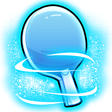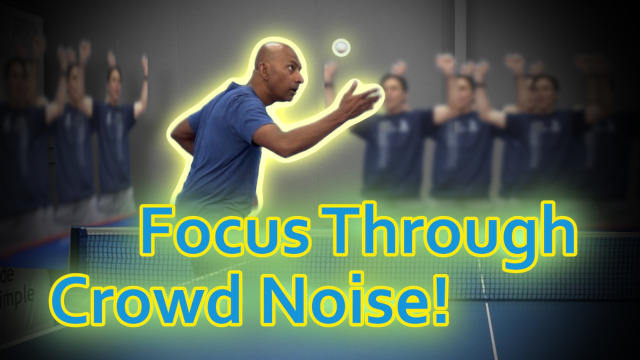Background noise
Discussion
Aaron Lin Asked 1 year ago
How much does environmental noise, especially that from other sports matter in table tennis? I usually play in a garage which is quiet, and have little club experience.
Today our church had a event where there was basketball, badminton and table tennis at a university gymnasium. It was in one big open area indoors with wooden flooring, and kids or highschoolers were playing basketball, generating lots of noise from basketballs bouncing, people running and some screaming. Compared to playing in the garage, I found this noise making it “feel” much harder to play with, such as not being able to hear my serve, the ball and the contact.
Is this something I should get used to (if I want to play in a club)? Is this what playing in a club environment is like (assuming there are people playing on other tables)?
 Alois Rosario Answered 1 year ago
Alois Rosario Answered 1 year ago
Hi Aaron,
The impact of environmental noise on your performance in table tennis can vary significantly among players. Some find it quite distracting, while others barely notice it. From your description, it sounds like the noise level at the event was quite high, which isn't uncommon in multi-sport venues but might be more intense than what you'd typically experience in a dedicated table tennis club. In a typical club environment, while there will certainly be background noise from other players hitting balls, chatting, or even from multiple games happening simultaneously, it generally won't be as chaotic or loud as what you described with basketball games and other activities happening all around.
Club noises tend to be more consistent and predictable, which might be easier for you to adapt to over time. However, getting used to playing with background noise can be beneficial, especially if you plan to compete. Tournaments often take place in large halls with many tables and lots of spectators, leading to a significant amount of background noise. Being able to maintain focus despite these distractions is a valuable skill. Here are a few tips to help you adapt to playing in noisier environments:
1. Focus on Visual Cues: When it's noisy, rely more on visual cues than auditory ones. Watch the ball closely from your opponent's racket to your own.
2. Routine Development: Develop and maintain a consistent pre-point routine. This can help you stay centred and focused, regardless of external noise.
3. Simulate Noisy Conditions: Occasionally, practice in noisier conditions if possible. This could be as simple as having a radio on in the background or practicing in a busier part of your club.
4. Mental Conditioning: Work on mental toughness exercises that enhance your ability to concentrate amidst distractions. Techniques such as mindfulness and visualisation can be very effective.
Give yourself some time to adjust, and try to incorporate these adjustments into your practice routines. You'll likely find that over time, your ability to shut out distractions and focus on the game will significantly improve.
Recommended Video
Distracted by the Crowd? Master Your Table Tennis Focus
Staying focused during a table tennis match can be tough, especially when the crowd is loud and distracting. But don’t worry—we’ve got you covered! In this video, we’ll explore essential mental strategies to block out the noise, maintain your composure, and play your best game, no matter how chaotic the crowd gets.
Watch NowNo comments yet!
Become a free member to post a comment about this question.
